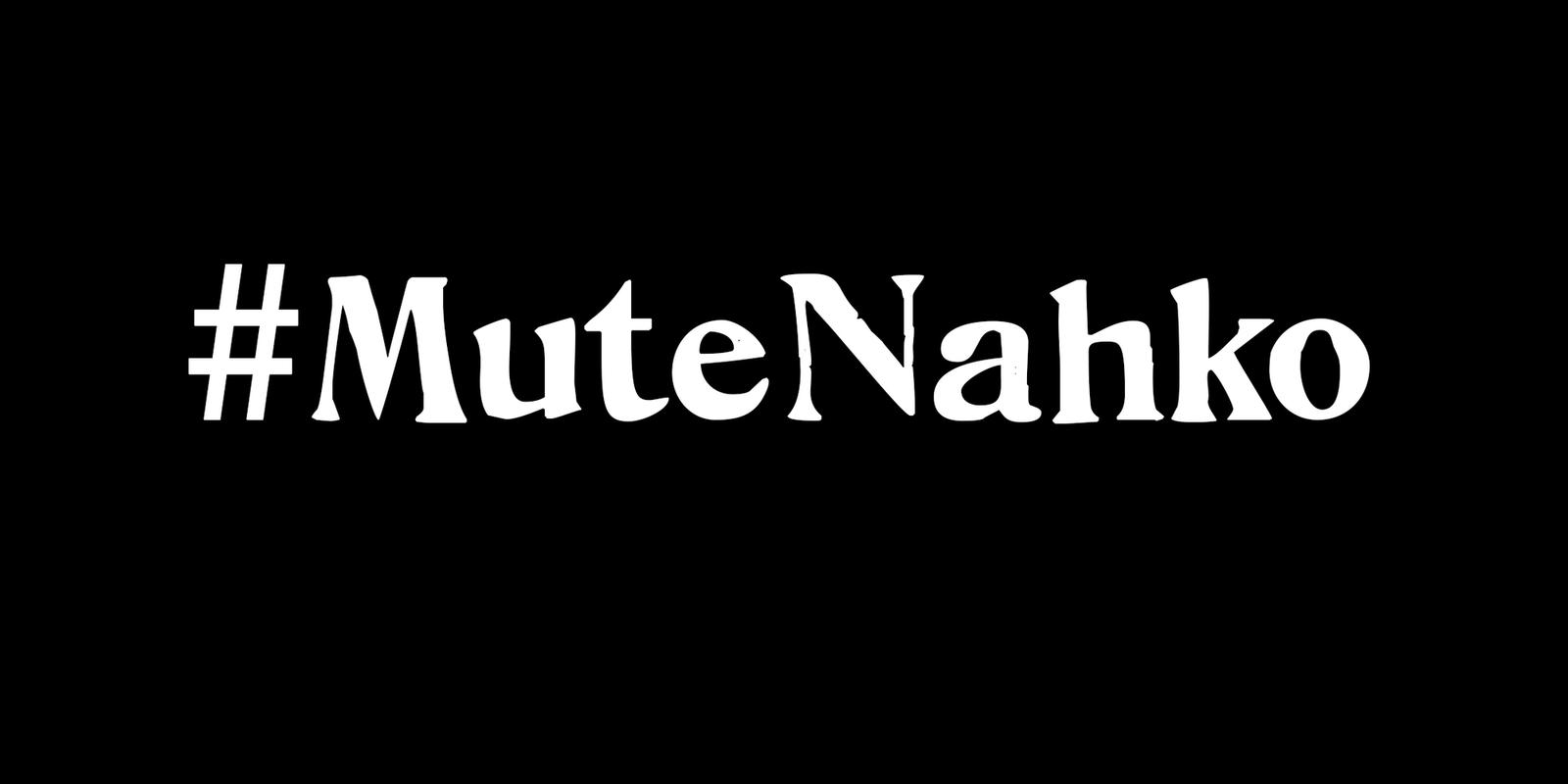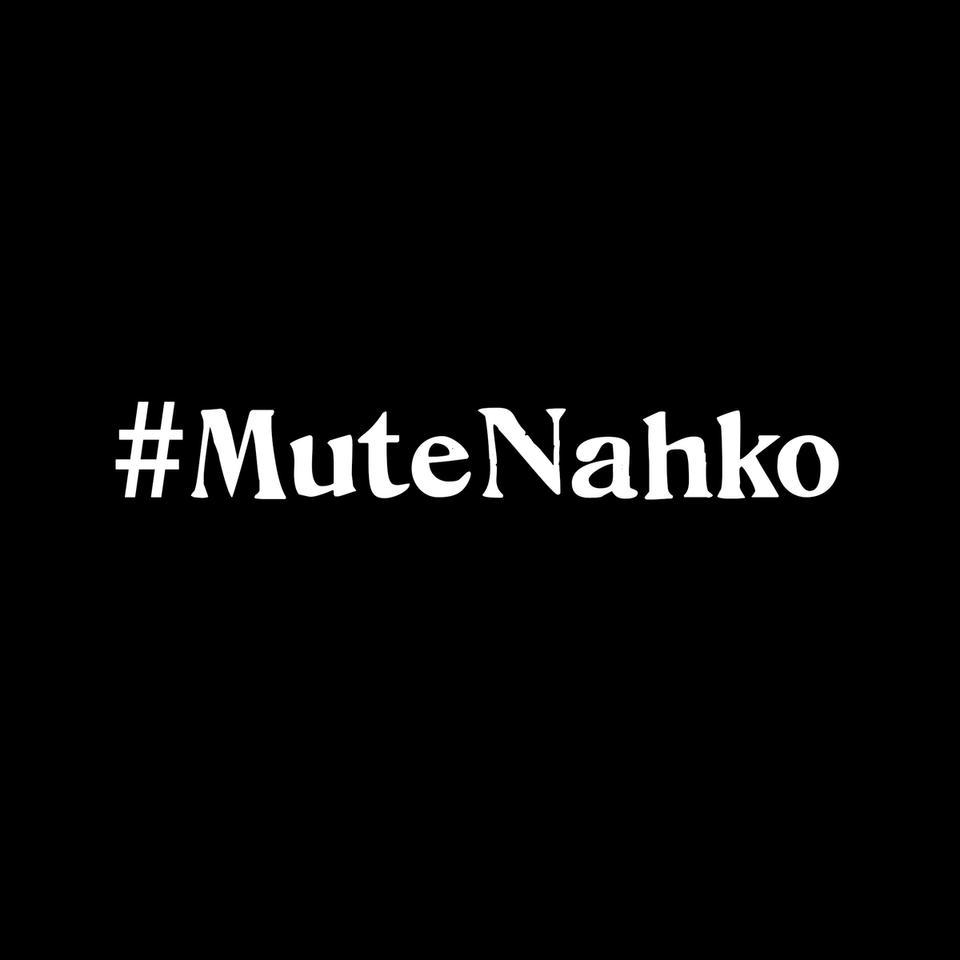
Beloved Statement on ♯MuteNahko
Solidarity Statement
Beloved Presents expresses solidarity with survivors calling for accountability for predatory sexual harm done by Nahko of Nahko And Medicine For The People, and by his associates. Beloved is committed to deplatforming him and his projects until he addresses the demands made by his multiple accusers. We are asking festivals, venues, media outlets and others in the music and live performance industry to #MuteNahko until he meaningfully participates in a healing justice accountability process.
While Beloved has a demonstrated commitment to addressing issues of consent and abuse in festival culture, we have made many mistakes and have colluded with systems that harm. We are sorry for the many ways we have failed to show up for survivors, including offering the Beloved platform to predatory people like Nahko at our last festival in August 2019.
The widespread and pervasive nature of rape culture and gender-based violence make addressing each instance a staggering task. Timelines matter in accountability processes (please see ours below). It is a deep challenge to honor the needs of survivors and hold the need for trauma-informed learning and community wholeness.
Supporting survivors, holding perpetrators accountable, and community wholeness can sometimes be competing agendas. Balancing these needs can be especially complicated by the specters of disposability and white urgency. When we were alerted to Nahko’s past harm, we began a survivor-led process which eventually led to a cancellation of his performance. The cancellation was rescinded on the condition that he make a public apology and statement of accountability, which did not happen and is consistent with his most recent non-apology.
Repeated targeting and grooming anyone for sexual reasons, especially those who are underage and vulnerable, is an abuse of power, it is exploitation, and we also hold that it is neither uncommon nor unique to our industry. This abuse is pervasive, but it will not happen again on our watch.
Our Approach to Accountability
We understand simply cancelling someone both literally and figuratively does not automatically make that person more safe, and in fact can result in the individual doing more harm in other communities less resourced than ours.
Further, the way identity falls along multiple axes of power means this particular rupture is a painful echo of white-led organizations, like ours, erasing indigenous voices. We believe this intersectional lens must be employed to fully nuance our concerns around de-platforming an indigenous man with strong ties to activism, movement work and indigenous rights advocacy which deserve to be lauded on their own merits.
We are committed to engaging in a community accountability process that is more than lip service, and we reject disposability as a function of state carceral violence [i.e., punishment, banishment, incarceration] often replicated in so-called accountability processes.
We understand it’s not actually possible or humane to throw someone away, because there is no “away.”
We do not believe any human being is actual literal trash. We do not cancel people’s humanity, or their ability to be resourced enough to transform.
*
Via adrienne maree brown:
“if our approach to someone else causing sexual harm is gleeful finger pointing, and pushing people out of our lives and communities with a smile on our faces, then we will never actually disrupt the cycle of harm. when we approach sexual harm as if it is only in the realm of monsters, we miss the way it is our earthly burden, the way the roots of it grow under every aspect of human society, perhaps since we came into existence. this might be our first flaw and our greatest evolution. we all have to change.”
*
From Fumbling Towards Repair: A Workbook for Community Accountability Facilitators:
The word “accountability” is thrown around liberally, but is very poorly understood. There is no way to “hold people accountable.” People can only “take accountability.” Accountability is a continuous, active, and voluntary process of being responsible to yourself and those around you for your choices and the consequences of your choices. Unlike punishment, it is something that we do rather than something that is done to us.
Taking accountability means that we expect consequences for actions that we take, that we take responsibility for harms that we have done, that we understand the impact[s]of those harms, and, finally, that we focus on repairing them.
*
Via Mia Mingus:
“Accountability is the ecosystem in which apologizing lives. True accountability, by its very nature, should push us to grow and change, to transform. Accountability is generative, not punitive. Do not ask for accountability, when what you really want is punishment or revenge. Just as it takes work to be accountable, it also takes work to receive someone’s accountability. We need to move away from “holding people accountable” and instead work to support people to proactively take accountability for themselves.”
*
Dominant culture continues to fail at providing basic levels of safety and belonging. Existing inside these traumatizing systems in fact makes survivors of us all, often perpetuating our trauma responses in the ways we too easily make monsters of each other. Not all suffering is equal, but we all share a response-ability to dream new ways of addressing accountability and harm.
As we reckon with these troubling realities, we continue to ask, and grieve in the lack of answers:
- In a community literally racing to catch up to a basic understanding of racism and other forms of oppression, how can we encourage a supportive collaboration [a learning model], over a competitive woke olympics [an achievement model]?
- How do we cultivate shame resilience in those who do harm, and offer an option for repair beyond the binary of collapsing or rebelling?
- How can we create the conditions for not just personal, but collective healing?
- How do we shift the ways we map our secure attachment onto crumbling power-over systems for our safety and security instead of onto each other in community with the good dreaming living earth, where it belongs?
- And how do we do all of this, when we cannot be together to do it?
A Timeline of Relevant Events:
March - July 2015 We begin the process of addressing consent and sexual harm in festival culture. We take accountability for ignoring violations by participants, staff, and presenters. We commit to learning more and doing better. Known abusers are tracked and denied entry. The CARE Tent is established as a safer space and hub for supporting consent culture and addressing harm. The CARE Team is developed to provide bystander intervention. Security and medical teams are given training to look for and intervene upon seeing signs of potential sexual harm.
Beloved Festival 2015 All attendees are asked to attend a consent training and to begin an examination of power and privilege. Safer space signage and literature is distributed throughout the site and to all attendees.
September 2015 - June 2019 Beloved continues a process of learning and imperfectly addressing issues of sexual harm, consent, and developing an anti-oppression lens to inform everything we do. Anti-oppression programming becomes an increasingly large percentage of our program, including a two-hour main stage slot each Saturday. Attempts, obviously flawed, are made to vet performers and presenters before inviting them.
April - July 2019 Beloved consults, pays for, publishes and amplifies resources and visionary works of community organizers, conflict resolution facilitators and healing justice practitioners across platforms in order to move the needle in festival culture around true belonging, vulnerability and liberation.
June 2019 Beloved is approached by community members interested in organizing Sanctuary Spaces to create safer-braver spaces at the summer event.
July - August 2019 Beloved was made aware of allegations of sexual harm by Nahko. No public statements had been made. Without consent to share allegations, a survivor-led process resulted in a plan to ask for accountability instead of cancellation. Negotiations with Nahko’s team and close friends result in an agreement that Nahko will make a true statement of accountability following an “Own, Apologize, Commit to Repair” format.
Friday Afternoon: We learn that Nahko plans to make a deflective statement instead of a real apology. We inform his team that he won’t be permitted to perform. The team requests another hour to consider a new statement and we agree. Literally seconds before the final phone call to cancel is made, a survivor of direct of harm by Nahko asks that the performance continue as scheduled, arguing that accountability efforts will be compromised by the cancellation. We agree to allow the performance.
Friday Evening: We begin to regret our decision and imagine actions that might support survivor safety and community wholeness. We plan a disruption of the set, preparing to paint large #believesurvivors signs on sheets and start recruiting participants for direct action to interrupt Nahko’s set. We also consider making a statement before or after the performance. We consult with conflict resolution facilitators and healing justice practitioners on our plans to disrupt or make our own statements before or after. We are advised that these actions could cause more harm. Nahko makes a deflective non-apology, performs his set, Beloved monitors and escorts his group off the premises.
Saturday Tree Stage: A statement of apology is issued for allowing the performance and not doing enough to keep survivors safe. Beloved announces the Healing Justice & Accountability Council (HJAC) to be formed in the coming months as an advisory group for the Beloved community.
Beloved Festival 2019: Beloved implements Sanctuary Spaces along with the CARE and White Bird Tents with increased programming around consent, harm, and accountability. We commit to fully funding and supporting such spaces moving forward.
Aug 2019: Published accessible video and accounts across platforms of healing justice initiatives at Beloved.
Aug 2019: We cancel an event with Nahko scheduled for November.
Aug 2019: Call made for HJAC volunteers. #MuteNahko campaign postponed to allow for participation of HJAC.
Aug 2019 - Mar 2020: A #MuteNahko campaign and the need to deplatform Nahko in the absence of accountability efforts is discussed with fellow event producers and industry contacts, invitations to participate in events that included Nahko are declined.
Sep 2019 - Jan 2020: Focused internal work on forming HJAC, including funding/honorariums for volunteers. Updated Beloved internal and public-facing culture to “Make Spaces Safer” at all Beloved events. Updated and clearly published anti-harassment policy across platforms.
Feb 2020: First HJAC Meeting, unable to continue meeting due to COVID-19
July 2020: Multiple public accounts of harm are published (see below). #MuteNahko publicly announced.
Credit Notes: Healing and transformative justice models are derived from the necessity of black, brown, and/or indigenous peoples to find alternatives to police, prisons and state-funded carceral justice systems. Please support prison abolition work locally and nationally.
#MuteNahko is a campaign with origins in the work of Atlanta Arts Administrator, Oronike Odeleye who started the #MuteRKelly campaign.
Important Links:
Hannah’s Impact Statement1: https://www.facebook.com/hannah.goodemann/posts/1148657392171292
Hannah’s Impact Statement2: https://www.facebook.com/100010811258338/posts/1147132732323758/?d=n
Lyla June’s FB statement: https://m.facebook.com/lylajune/posts/2325123961128181
Calling All Crows Statement: https://www.callingallcrows.org/july2020statement
More personal accounts of harm by Nahko: https://www.facebook.com/cegarnier77/posts/3369265326425049
More personal accounts harm by Nahko: https://www.facebook.com/100000248434554/posts/3360774087274173/?d=n
Trevor Hall’s IG statement: https://www.instagram.com/p/CCHo8Pglfk5/
reddit thread: https://www.reddit.com/r/jambands/comments/hihmai/nahko_is_getting_cancelled_yall/fwmjein/
Band Statement: https://www.facebook.com/nahkoandmedicineforthepeople/posts/10157155483106541
Nahko’s Statement: https://www.facebook.com/nahkoofficial/posts/2157800967678456
Resources:
Beloved IG Highlight on Healing Justice
Muting Is Not Disposing by adrienne maree brown
No Monster Will Keep You Safe At Night by adrienne maree brown
MeToo and Transformative Justice: The Practices We Need
How To Give A Good Apology by Mia Mingus
